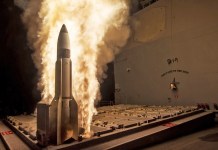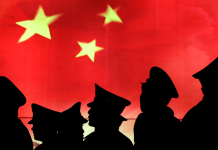Taiwan “must and will be” reunified with China. This was stated by Chinese President Xi Jinping a threat that has caused anxiety in Taiwan which has long advocated for independence, but good ties with Beijing. Can India protect the territorial interest of Taiwan?
Taiwan Deploys Advance Missiles Targeting Shanghai and Hong Kong
Taiwan has made various statements about being more independent, which has led China to say that Taiwan has to reunite with the mainland at some point. However, it appears that this euphuism has prompted Taiwan to push forward with its own trade plans.
Due to its positioning in the Asia Pacific region, and particularly in the South China Sea, Taiwan has seen signs of aggression from all the sides. The US is even trying to entice Taiwan to work with it on trade, which could well be one of the reasons why China is taking a harder stance.
There are clear signs that China is looking to enhance the influence that it exerts in the region at present, but in the face of its strong words, Taiwan apparently has no plan of taking any threats lying down.
Taiwan is now looking to diminish its reliance on China. Xi Jinping asserted that he will not object to using military force to bring Taiwan back under China’s control. It would seem that Taiwan’s best assurance is to refuse to stay isolated on the matter and work on bilateral trade with other nations.
At present, 40% of Taiwan’s exports go to China, accounting for nearly 50% of Taiwan’s GDP. Taiwanese President Tsai Ing-wen introduced the New Southbound Policy, a document that sets out intentions to get new investment from other South Asian nations., especially India.
The Taiwan External Trade Development Council will be working to achieve this, and Chairperson James Huang has called India “the jewel in our external economic strategy.” India’s mass labour market, low wages and skill in electronics are well suited to the Taiwanese tech sector.
With India’s aim to grow its GDP by 8%-10% and its population set to overtake China’s, there could well be a developing battle between the two nations to establish themselves as dominant powers in the burgeoning tech market. China is beginning to feel the effects of a trade war between itself and the US.
Taiwan is likely to struggle with growth if it cannot establish bases in other countries due to its shortages in land and energy capacity. Forming agreements with nations such as India could, therefore, help Taiwan to flourish, reduce its reliance on China, and gain support from elsewhere.
Earlier Reports
Chinese Premier Xi Jinping has made it clear that China will not compromise Taiwan at any cost. In a speech, on Wednesday in Beijing, he said unification of Taiwan with the mainland is ‘inevitable’.
Xi stressed China’s tough stance that they will not hesitate to use force. “We do not promise to renounce the use of force and reserve the option to use all necessary measures.” The island province of Taiwan slipped away from the mainland in 1949 when the Communist Party seized China in a civil war. The Nationalist Kuomintang army fled to Taiwan.
Beijing reverberated ‘democratic consultations’ but with a threat that Taiwan has to reunify with mainland China. Xi reiterated the Communist Party’s call to end military confrontation across the Taiwan Strait and to reach transitional arrangements for the peaceful development of cross-strait ties.
According to RFi, China, on January 1 of 1979, asked the Taiwanese compatriots to put an end to hostilities, pleading for reunification, but the United States adopted the ‘Taiwan Relations Act’ on the same day.
“The Act stated that any effort to determine the future of Taiwan by other than peaceful means is of grave concern to the US.” Experts say that Beijing’s tough stance is, in fact, to do with foreign forces who seek to interfere in its relations with the island province. In March 2018, the Chinese Embassy in Washington in a strongly worded statement protested US’s ‘Taiwan Travel Act’. The statement said the Act had severely violated the one-China principle. It further stated that the US should stop pursuing any official ties with Taiwan or improving its current relations with Taiwan in any substantive way.
Military analyst Ni Lexiong says China has been using both hard and soft approaches with Taiwan. “Military deterrence towards the separatists and the Americans, and incentives trying to appeal to the general Taiwanese people.
More News at EurAsian Times
- Indian Military Base in Vietnam To Protect Hanoi’s Territorial Interest
- Indian Military Base in Indonesia can Strangle China at the Strait of Malacca
- Saudi Money, US Weapons, Israeli Intelligence Fuelling Arab NATO – Iran
- Will Ayni Airbase in Tajikistan Become India’s 1st Overseas Military Base?
- Indonesia Opens Another Military Base at Natuna Islands To Counter Aggressive China





